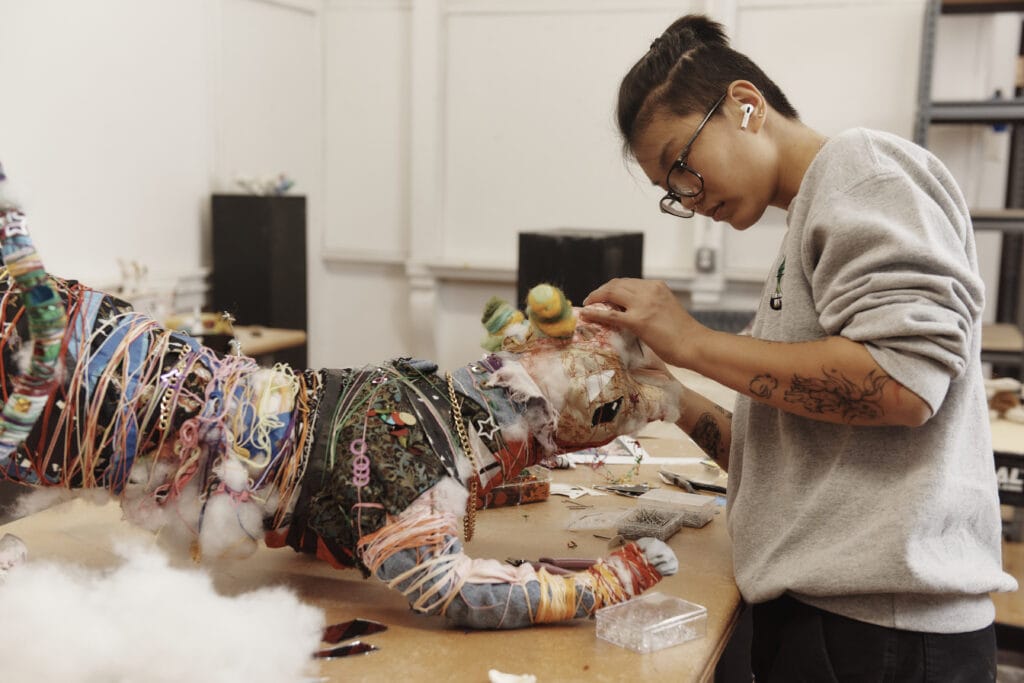MartyAid / Uwill provides all students with immediate, 24-hour support at no cost, regardless of health insurance. Students can speak with a licensed counselor directly from their phone from any location. Call (617) 879-7760 and press 1 to reach the 24/7 Support Line.
Mental Health & Counseling
Free short-term psychotherapy, referrals, and other resources for our students.
Our aim is to provide high-quality, inclusive, and flexible mental health services to all eligible undergraduate and graduate students, with a focus on making mental health services available for students who would not otherwise be able to access them.
To request a first appointment, please send us an email or call us! Please let us know your availability and if you prefer in-person or virtual sessions. If you have previously met with a therapist at the Counseling Center, you are welcome to contact that therapist directly to schedule an appointment.
Office hours:
Monday–Friday, 9:00am to 5:00pm
Counseling Center
621 Huntington Avenue
Boston, MA 02115
counseling@massart.edu
P: (617) 879-7760 • F: (617) 879-7769
Location: Kennedy Building, 2nd Floor, K222
Diagnosis of a psychological disability resulting in a prescription for an emotional support animal is a complex process that requires several sessions in order to understand the presence, intensity, and duration of various symptoms, degree of impairment in several areas of life functioning, and an evaluation of how an emotional support animal (ESA) would help mitigate symptoms and improve functioning.
The MassArt Counseling Center focuses on ongoing treatment and acute/crisis services and we do not provide psychological work-ups for the purposes of disability documentation and ESA prescriptions.
For these reasons, the Counseling Center does not issue letters of support for ESA’s. The Counseling Center is available to provide referrals for students seeking an evaluation for an emotional support animal. For more information regarding obtaining documentation related to an ESA accommodation, please refer to our Service and Emotional Support Animal Policy.
Any MassArt undergraduate or graduate student.
There is no fee for counseling services provided by the MassArt Counseling Center. If you are referred to an off-campus provider, you will be charged for these services. We make every attempt to refer students to providers who accept their insurance plans and/or to providers who can offer a sliding scale fee.
Monday – Friday 9:00am-5:00pm.
Incoming students must upload their immunization record, signed by a physician, to an online portal called CastleBranch. The online portal tracks immunization and vaccination information. Students will need to place a new order with their student ID number. The deadline for Fall 2024 admits is Sunday, June 30, 2024. Students who have not submitted their immunization records will not be allowed on campus (students will not be allowed to move into on-campus housing, swipe into on-campus buildings, or attend class).
Need more information? Visit the Immunizations webpage.
Have questions? Please contact the immunizations team at immunizations@massart.edu.
If you are on campus, call your RD or call public safety at 617.879.7800 if it is an emergency. Public safety will call the on-call counselor if there is a mental health concern. If you are off-campus and it is a mental health emergency, call 911 or go to your local emergency department.
Counseling is appropriate for anyone who is struggling with a specific problem or has a general concern. Students seek counseling for anxiety, depression, personal growth, relationship issues, identity issues, and acute problems or crises.
Yes, we offer groups based on student interest.
If you live on campus, you can speak to your RD or report your concern to the Dean and Associate VP of Student Development. You are also welcome to make an appointment at the Counseling Center to discuss your concerns with a counselor. Additionally, you can submit an online report to the ACT team.
No. All disability accommodations are processed and approved with the required medical documentation by the Academic Resource Center on the second floor of Kennedy in the Student Development Office, 617.879.7280










